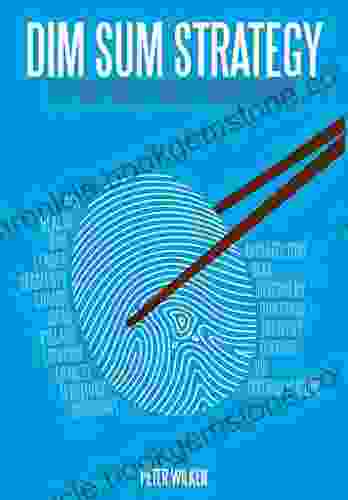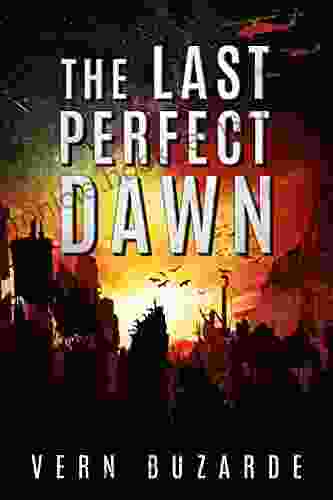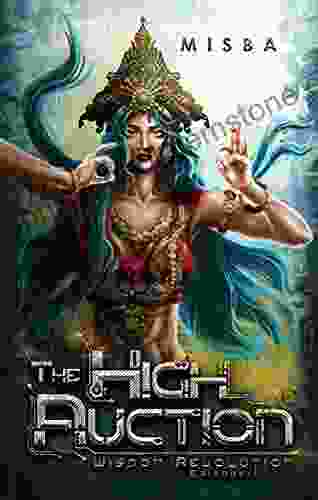The Philosophy of Steven Soderbergh: The Philosophy of Popular Culture

Steven Soderbergh is one of the most acclaimed and successful filmmakers working today. He has won an Academy Award, two Golden Globes, and three Independent Spirit Awards. His films have been praised for their intelligence, their craftsmanship, and their ability to connect with audiences on a deeply emotional level.
5 out of 5
| Language | : | English |
| File size | : | 785 KB |
| Text-to-Speech | : | Enabled |
| Enhanced typesetting | : | Enabled |
| Word Wise | : | Enabled |
| Print length | : | 329 pages |
| Lending | : | Enabled |
| Screen Reader | : | Supported |
In this essay, I will argue that Soderbergh's work is informed by a sophisticated and consistent philosophy of popular culture. I will explore this philosophy by examining three of his most important films: "sex, lies, and videotape" (1989),"Erin Brockovich" (2000),and "Magic Mike" (2012).
"sex, lies, and videotape"
"sex, lies, and videotape" was Soderbergh's debut film. It tells the story of a group of friends who are struggling to come to terms with their sexuality and their relationships. The film was a critical and commercial success, and it won the Palme d'Or at the Cannes Film Festival.
In "sex, lies, and videotape," Soderbergh explores the ways in which popular culture can shape our understanding of ourselves and our world. The film's characters are constantly watching and discussing movies and television shows, and these images and stories have a profound impact on their lives. For example, the character of Graham Dalton (James Spader) is a successful lawyer who is struggling to come to terms with his homosexuality. He is drawn to the character of John Cage (Peter Gallagher) in the film "The Breakfast Club" (1985),and he sees Cage as a role model for how to live an authentic life.
Soderbergh's film also suggests that popular culture can be a source of empowerment. The character of Ann Bishop (Laura San Giacomo) is a single mother who is struggling to make ends meet. She finds solace in the films of John Hughes, and she sees these films as a way to escape her现实的生活. In one scene, Ann watches the film "Ferris Bueller's Day Off" (1986) with her daughter, and she is inspired by Ferris's ability to live life on his own terms.
"Erin Brockovich"
"Erin Brockovich" is a biographical drama film that tells the story of a single mother who takes on a powerful corporation in a class-action lawsuit. The film was a critical and commercial success, and it won Julia Roberts an Academy Award for Best Actress.
In "Erin Brockovich," Soderbergh explores the ways in which popular culture can be used to effect social change. The film's title character is a working-class woman who is not taken seriously by the legal establishment. However, she is able to use her knowledge of popular culture to connect with the jury and win the case. For example, she uses the film "A Few Good Men" (1992) to explain the concept of "duty to warn" to the jury.
Soderbergh's film also suggests that popular culture can be a source of inspiration. The character of Erin Brockovich is based on a real-life woman who fought for justice against all odds. Her story is a reminder that anyone can make a difference in the world, no matter how small they may seem.
"Magic Mike"
"Magic Mike" is a comedy-drama film that tells the story of a male stripper who is trying to find his place in life. The film was a critical and commercial success, and it starred Channing Tatum, Alex Pettyfer, and Matthew McConaughey.
In "Magic Mike," Soderbergh explores the ways in which popular culture can be a source of both pleasure and pain. The film's characters are drawn to the world of male stripping for a variety of reasons. Some of them are looking for fame and fortune, while others are simply looking for a way to make a living. However, the film also shows the dangers of this world. The characters are often exploited by their employers, and they are often forced to do things that they do not want to do.
5 out of 5
| Language | : | English |
| File size | : | 785 KB |
| Text-to-Speech | : | Enabled |
| Enhanced typesetting | : | Enabled |
| Word Wise | : | Enabled |
| Print length | : | 329 pages |
| Lending | : | Enabled |
| Screen Reader | : | Supported |
Do you want to contribute by writing guest posts on this blog?
Please contact us and send us a resume of previous articles that you have written.
 Best Book
Best Book Page Flip
Page Flip Bookshelf
Bookshelf Literary loom
Literary loom Chapter
Chapter Bookish
Bookish PageTurner
PageTurner Bibliophile
Bibliophile Story
Story Inkwell
Inkwell Bookworm
Bookworm Labyrinth
Labyrinth Plot Twist
Plot Twist Prose
Prose Paperback
Paperback Storyteller
Storyteller Sanctuary
Sanctuary Fiction
Fiction Reading
Reading Chronicle
Chronicle Read
Read Adam Frankel
Adam Frankel Ed Andreychuk
Ed Andreychuk Ira Sukrungruang
Ira Sukrungruang Garth Stein
Garth Stein Sandra Staple
Sandra Staple Kirsten Mckenzie
Kirsten Mckenzie Vivian Jeanette Kaplan
Vivian Jeanette Kaplan Nicole Mones
Nicole Mones Tony Hefner
Tony Hefner Makoto Fujimura
Makoto Fujimura Jan Caeyers
Jan Caeyers Craig A Falconer
Craig A Falconer Angela Y Davis
Angela Y Davis Yochanan Fein
Yochanan Fein Hirokazu Miyazaki
Hirokazu Miyazaki Jackie Faasisila
Jackie Faasisila Adolf Hungry Wolf
Adolf Hungry Wolf Ruth Fidler
Ruth Fidler Alexander Van Millingen
Alexander Van Millingen Pamela Craft
Pamela Craft John Mierau
John Mierau Alec Waugh
Alec Waugh Caius A Mauricette
Caius A Mauricette Kathleen Grissom
Kathleen Grissom Chan Park
Chan Park Alexander Simpson
Alexander Simpson Stephen Greenblatt
Stephen Greenblatt Rob Zombie
Rob Zombie Laura Lam
Laura Lam Susan J Cobb
Susan J Cobb Shelli Marie
Shelli Marie Michelle Houts
Michelle Houts Cheryl Briggs
Cheryl Briggs Abigail Thomas
Abigail Thomas Abe Streep
Abe Streep Rachel Aukes
Rachel Aukes Dominik Imseng
Dominik Imseng Connie Ann Valenti
Connie Ann Valenti Andrew Farago
Andrew Farago Jim Korkis
Jim Korkis Abdulrazak Gurnah
Abdulrazak Gurnah Elizabeth Leane
Elizabeth Leane Adam Selzer
Adam Selzer Alice Dews
Alice Dews Connie Pombo
Connie Pombo Chantal V Johnson
Chantal V Johnson Jennifer Lilya
Jennifer Lilya Jared Clemons
Jared Clemons Halle Mcqueen
Halle Mcqueen Wooden Leg
Wooden Leg Michael Reardon
Michael Reardon Jeff Brown
Jeff Brown Jed Perl
Jed Perl Peter C Smith
Peter C Smith Jami Attenberg
Jami Attenberg Rufus Mcgaugh
Rufus Mcgaugh John Banville
John Banville Ted Orland
Ted Orland Seabury Quinn
Seabury Quinn Engineer Greg
Engineer Greg Anne Marie O Connor
Anne Marie O Connor Penny Brown
Penny Brown Douglas Mccall
Douglas Mccall Abby Denson
Abby Denson Adam Nayman
Adam Nayman Josh Law
Josh Law Irene Eizen
Irene Eizen Abhirup Bhattacharya
Abhirup Bhattacharya Charles Darwin
Charles Darwin Carmine Rossi
Carmine Rossi Sandra Shpilberg
Sandra Shpilberg Rochelle Spencer
Rochelle Spencer Karen Osborne
Karen Osborne Ferial Youakim
Ferial Youakim Robert C Cumbow
Robert C Cumbow Actus
Actus Suzanne Ostersmith
Suzanne Ostersmith Emery C F Bryant
Emery C F Bryant Philip Mould
Philip Mould Joe Cartwright
Joe Cartwright Abby Hoy
Abby Hoy David Bergsland
David Bergsland Denese A Rodgers
Denese A Rodgers A Hauser
A Hauser Kal Spriggs
Kal Spriggs Melissa Gilbert
Melissa Gilbert David Robbins
David Robbins Ben Bova
Ben Bova Wahida Clark
Wahida Clark Erika Mailman
Erika Mailman Onethree L
Onethree L Dean Wesley Smith
Dean Wesley Smith Carlos L De La Rosa
Carlos L De La Rosa Dick Cluster
Dick Cluster Annette Marie
Annette Marie Adriana Trigiani
Adriana Trigiani Jean Daive
Jean Daive Kim Michele Richardson
Kim Michele Richardson Diana Vreeland
Diana Vreeland Lawrence Winkler
Lawrence Winkler Randa Jarrar
Randa Jarrar Vanessa Hua
Vanessa Hua Keith Whiting
Keith Whiting Marco Polo
Marco Polo Brian Jay Jones
Brian Jay Jones Max Porter
Max Porter Adrian Matejka
Adrian Matejka E J Koh
E J Koh Abdul El Sayed
Abdul El Sayed Abby Lee Miller
Abby Lee Miller Anne Green Gilbert
Anne Green Gilbert Charles Scott
Charles Scott Lucille Ball
Lucille Ball Samuel Best
Samuel Best Michael Dimercurio
Michael Dimercurio Brian Lockman
Brian Lockman Peter Jenkins
Peter Jenkins Stevie Salas
Stevie Salas Rick Thompson
Rick Thompson Adam Skolnick
Adam Skolnick Eric Little
Eric Little Natasha Knight
Natasha Knight Roz Goldfarb
Roz Goldfarb Sally Field
Sally Field Giovanni Antonio Canal
Giovanni Antonio Canal Graham Hutchins
Graham Hutchins Virginia Lia
Virginia Lia Lina Chang
Lina Chang David M Buerge
David M Buerge Ace Atkins
Ace Atkins Timothy F Geithner
Timothy F Geithner Ernst Haeckel
Ernst Haeckel Dean Heath
Dean Heath Elizabeth George
Elizabeth George Maureen Klovers
Maureen Klovers Yvonne Navarro
Yvonne Navarro James G Speight
James G Speight Robert H Ruby
Robert H Ruby Aaron Linsdau
Aaron Linsdau Ada Hoffmann
Ada Hoffmann Cavan Scott
Cavan Scott John Sandford
John Sandford Jim Butcher
Jim Butcher John Schreiner
John Schreiner Olivia Laing
Olivia Laing Sam Gennawey
Sam Gennawey Stuart Smith
Stuart Smith H P Lovecraft
H P Lovecraft Lynda Williams
Lynda Williams Maturin Murray Ballou
Maturin Murray Ballou Rodney Barker
Rodney Barker Amir Tsarfati
Amir Tsarfati Kassandra Lamb
Kassandra Lamb Hashim Akib
Hashim Akib Eileen Cronin
Eileen Cronin Eerie Von
Eerie Von Michael Harkins
Michael Harkins Adolph L Reed
Adolph L Reed Carla Rahn Phillips
Carla Rahn Phillips Debbie Millman
Debbie Millman Stephanie Peterson Jones
Stephanie Peterson Jones Malcolm Guite
Malcolm Guite Gabe Baltazar
Gabe Baltazar Henry Cejudo
Henry Cejudo Alan K Rode
Alan K Rode Pam Grier
Pam Grier H Terrell Griffin
H Terrell Griffin Misba
Misba Jeremy Bai
Jeremy Bai Patrice Balark
Patrice Balark Stephen Flanagan
Stephen Flanagan Ilise Benun
Ilise Benun Allison Levy
Allison Levy James Omoghosa Abu
James Omoghosa Abu Lisa Jones
Lisa Jones Franklyn Sills
Franklyn Sills Miriam Wenger Landis
Miriam Wenger Landis Amanda Milo
Amanda Milo Jay Narayan
Jay Narayan David Annandale
David Annandale Victoria Aveline
Victoria Aveline Vova Bo
Vova Bo Manuel Lima
Manuel Lima S K Hardy
S K Hardy Susannah Shaw
Susannah Shaw Sheila Heti
Sheila Heti Julie Hoverson
Julie Hoverson James Webb
James Webb Walter E Little
Walter E Little Andre Norton
Andre Norton Adam Mayers
Adam Mayers Eric Van Lustbader
Eric Van Lustbader Dale Armstrong
Dale Armstrong Chuck Wendig
Chuck Wendig Andrea Linett
Andrea Linett Roman Plesky
Roman Plesky Deborah Levy
Deborah Levy Valeria Vegas
Valeria Vegas Anja Grebe
Anja Grebe Mallory Monroe
Mallory Monroe Beverly Grondin
Beverly Grondin Elly Thuy Nguyen
Elly Thuy Nguyen Mary Hollingsworth
Mary Hollingsworth Alice Childress
Alice Childress Ellen Ward Lopez
Ellen Ward Lopez Laure Paillex
Laure Paillex David Mitchell
David Mitchell Adrian Tchaikovsky
Adrian Tchaikovsky Nicola Griffith
Nicola Griffith Friedrich Glauser
Friedrich Glauser Joanna Goss
Joanna Goss Rod Kluzki
Rod Kluzki Tessa Dare
Tessa Dare Zain Deane
Zain Deane Dan Tranberg
Dan Tranberg Yvonne Tasker
Yvonne Tasker Fiona Stocker
Fiona Stocker Esther Henry
Esther Henry Adam Fortunate Eagle
Adam Fortunate Eagle Gabriel Levin
Gabriel Levin Christina Sharpe
Christina Sharpe Michael Showalter
Michael Showalter Clare Walker Leslie
Clare Walker Leslie Charles Solomon
Charles Solomon Jolyn Parker
Jolyn Parker Angela Dejong
Angela Dejong Wilbur Smith
Wilbur Smith Italo Svevo
Italo Svevo Helen Fremont
Helen Fremont Deyan Sudjic
Deyan Sudjic Brian Yansky
Brian Yansky Aaron Sanchez
Aaron Sanchez John Bester
John Bester Michael Atavar
Michael Atavar Darien Gee
Darien Gee Addison Jane
Addison Jane Polina Traore Dana Kaledin
Polina Traore Dana Kaledin Abby Stein
Abby Stein Adam Gamble
Adam Gamble Cheng Yan
Cheng Yan Nato Thompson
Nato Thompson Benjamin Kerstein
Benjamin Kerstein Helen Keller
Helen Keller Kristine Kathryn Rusch
Kristine Kathryn Rusch Giovanni Battista Piranesi
Giovanni Battista Piranesi Mary Jane Hall
Mary Jane Hall Wolfgang Daunicht
Wolfgang Daunicht Abbie Hoffman
Abbie Hoffman Chencia C Higgins
Chencia C Higgins Barbara Laine
Barbara Laine Peter T Deutermann
Peter T Deutermann Christopher G Nuttall
Christopher G Nuttall R B Herkes
R B Herkes Alexandra Billings
Alexandra Billings Sean Oswald
Sean Oswald Carol Hayes
Carol Hayes Jeremy Zenith
Jeremy Zenith Gregory Mattix
Gregory Mattix David Farmer
David Farmer Alyson Sheldrake
Alyson Sheldrake Rita Goldberg
Rita Goldberg Jeffrey Kluger
Jeffrey Kluger Jessica Dunham
Jessica Dunham Kathleen Rooney
Kathleen Rooney Sheila Williams
Sheila Williams David Bayles
David Bayles Charles River Editors
Charles River Editors Jack L Grossman
Jack L Grossman Lamar Neal
Lamar Neal Le Roy H Appleton
Le Roy H Appleton Jacqueline Woodson
Jacqueline Woodson Lejuan James
Lejuan James Tao Wong
Tao Wong Maggie Price
Maggie Price Aaron Lansky
Aaron Lansky Colin Odell
Colin Odell Robert Beverly Hale
Robert Beverly Hale Adina Hoffman
Adina Hoffman John Biggar
John Biggar Evan Currie
Evan Currie Hiram Garcia
Hiram Garcia Nghi Vo
Nghi Vo Todd Wassel
Todd Wassel John Jennings
John Jennings John Leighton
John Leighton M H Johnson
M H Johnson David Marusek
David Marusek Ben Pester
Ben Pester Julius B Fleming Jr
Julius B Fleming Jr Helen Zia
Helen Zia Nat Segaloff
Nat Segaloff Adam Tetlow
Adam Tetlow Sarah Mccartney
Sarah Mccartney Laurence Parent
Laurence Parent Peter Dendle
Peter Dendle Agathe Trapp
Agathe Trapp John Scherber
John Scherber Patrick Bade
Patrick Bade Peter Tonguette
Peter Tonguette William Joseph Hill
William Joseph Hill Jorge J E Gracia
Jorge J E Gracia Rachel Shirley
Rachel Shirley Linda Hartley
Linda Hartley Giorgio Vasari
Giorgio Vasari Matthew O Brien
Matthew O Brien David Kidd
David Kidd Richard Schickel
Richard Schickel Sue Kim
Sue Kim Lisa Scottoline
Lisa Scottoline Keith Van Sickle
Keith Van Sickle Neil Macfarquhar
Neil Macfarquhar Pixie Unger
Pixie Unger Chandra Blumberg
Chandra Blumberg David Feltmate
David Feltmate Keisha J
Keisha J Loretta Krupinski
Loretta Krupinski Julia Cameron
Julia Cameron Michael Newberry
Michael Newberry Nancy Skolos
Nancy Skolos Fx Holden
Fx Holden Rob Zabrecky
Rob Zabrecky Ashley C Ford
Ashley C Ford Tamara Marie
Tamara Marie Malaka Gharib
Malaka Gharib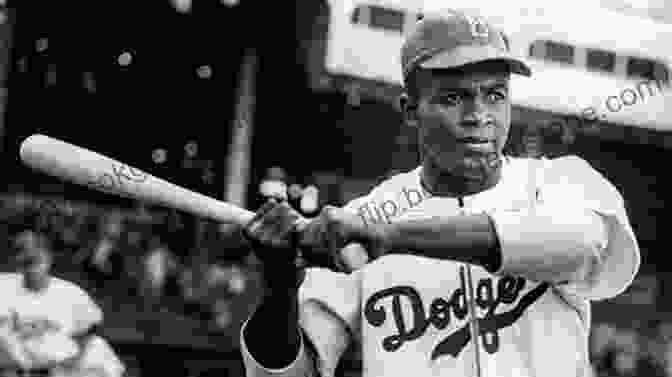 Jackie Robinson
Jackie Robinson The Total Travel Guide Company
The Total Travel Guide Company Gordon Theisen
Gordon Theisen Adam Troy Castro
Adam Troy Castro Ivan So
Ivan So Dr Steven Gardner
Dr Steven Gardner Stephen Quiller
Stephen Quiller David Brendel
David Brendel Brian L Evans
Brian L Evans Tacarra
Tacarra Ray Bradbury
Ray Bradbury Tara Conklin
Tara Conklin Gilad Segev
Gilad Segev Kelle Hampton
Kelle Hampton Roy Lang
Roy Lang Stephen Mack Jones
Stephen Mack Jones Frank M Rines
Frank M Rines Adam Gidwitz
Adam Gidwitz C S Friedman
C S Friedman David Larocca
David Larocca Richard Schweid
Richard Schweid Sam Wasson
Sam Wasson Kindle Interactive Edition
Kindle Interactive Edition George Stietz
George Stietz Danica Winters
Danica Winters Melissa Maker
Melissa Maker Lilly Dancyger
Lilly Dancyger Amy C Balfour
Amy C Balfour Edward K Kaplan
Edward K Kaplan Sue Hiepler
Sue Hiepler Lara Shannon
Lara Shannon M Jacobs
M Jacobs Emily Design
Emily Design Deesha Philyaw
Deesha Philyaw Nick Cook
Nick Cook Vern Buzarde
Vern Buzarde Bill O Neill
Bill O Neill Robert J Serling
Robert J Serling Stacey Weaver
Stacey Weaver Rob Goss
Rob Goss Jade Snow Wong
Jade Snow Wong Ricardo S Sanchez
Ricardo S Sanchez Dani Cavallaro
Dani Cavallaro Shane Shepherd
Shane Shepherd Adam Fletcher
Adam Fletcher Liesbet Collaert
Liesbet Collaert Mercedes Lackey
Mercedes Lackey Illustrated Edition Kindle Edition
Illustrated Edition Kindle Edition Kennedy King
Kennedy King Zara Thorne
Zara Thorne John Annerino
John Annerino Barry Hatton
Barry Hatton Tw Neal
Tw Neal Mary Norris
Mary Norris Pedro Mendes
Pedro Mendes Angela May
Angela May Books Club
Books Club Davar Ardalan
Davar Ardalan Peter Schwenger
Peter Schwenger Chris Patten
Chris Patten Morgan Richard Olivier
Morgan Richard Olivier Susan Gaber
Susan Gaber Mark Amerika
Mark Amerika John Richardson
John Richardson Hope Jahren
Hope Jahren Sudhir Hazareesingh
Sudhir Hazareesingh Jonathan Mooney
Jonathan Mooney Carolyn Burke
Carolyn Burke Diana Cooper
Diana Cooper Michael Massen
Michael Massen Michael Langlois
Michael Langlois Bill Barich
Bill Barich Eric Scigliano
Eric Scigliano Kristen Stein
Kristen Stein Torey L Hayden
Torey L Hayden Edgar Bergen
Edgar Bergen Robin Gaby Fisher
Robin Gaby Fisher April Baker Bell
April Baker Bell Nicolas Forgue
Nicolas Forgue Peter Kazaks
Peter Kazaks Adrian Nicole Leblanc
Adrian Nicole Leblanc Paul Clayton
Paul Clayton Robin Roberts
Robin Roberts Helen Mccarthy
Helen Mccarthy Tim Mulliner
Tim Mulliner K Nicole
K Nicole Kendra Sumter
Kendra Sumter Bill Sherk
Bill Sherk Michael H Hodges
Michael H Hodges Traci Bautista
Traci Bautista Adam Phillips
Adam Phillips John Kenneth Muir
John Kenneth Muir Viajo Logo Existo
Viajo Logo Existo Olita Design
Olita Design Enjeela Ahmadi Miller
Enjeela Ahmadi Miller Jintana Rattanakhemakorn
Jintana Rattanakhemakorn Tanya Angelova
Tanya Angelova Josh Levine
Josh Levine T A Williams
T A Williams Anand Prahlad
Anand Prahlad Dynamo
Dynamo Naomi Finley
Naomi Finley Elizabeth Rusch
Elizabeth Rusch Tom Delonge
Tom Delonge Talek Nantes
Talek Nantes Arthur Schopenhauer
Arthur Schopenhauer Karen Reed
Karen Reed Peter Lasalle
Peter Lasalle Jan Hawkins
Jan Hawkins Timothy P Spira
Timothy P Spira Hans Holbein
Hans Holbein Karen Rose Smith
Karen Rose Smith Eve Brown Waite
Eve Brown Waite Paolo Hewitt
Paolo Hewitt Rob Sinclair
Rob Sinclair Jenny Pentland
Jenny Pentland Fritz Lang
Fritz Lang Sadaf Farooqi
Sadaf Farooqi Albert Alhadeff
Albert Alhadeff T A Mclaughlin
T A Mclaughlin Bernd Schubert
Bernd Schubert Peter Genovese
Peter Genovese Wilma Roos
Wilma Roos J A Taylor
J A Taylor Fritz Leiber
Fritz Leiber James Rosone
James Rosone Marissa Cox
Marissa Cox Craig Martelle
Craig Martelle Wolf Moon
Wolf Moon Amarie Avant
Amarie Avant Marian Leah Knapp
Marian Leah Knapp Douglas R Hall
Douglas R Hall Chelsea Handler
Chelsea Handler Christopher Densmore
Christopher Densmore Tom Brierton
Tom Brierton Brin Jonathan Butler
Brin Jonathan Butler Tom Von Logue Newth
Tom Von Logue Newth Adam Abraham
Adam Abraham Theodore Sturgeon
Theodore Sturgeon Stephen Laskevitch
Stephen Laskevitch Anne Gillain
Anne Gillain Errol Fuller
Errol Fuller Theo Coster
Theo Coster Jamie Wesley
Jamie Wesley Asia Monique
Asia Monique Dana R Jones
Dana R Jones Ashley Kahn
Ashley Kahn Francis Parkman
Francis Parkman Gabrielle Reece
Gabrielle Reece Plewaynar
Plewaynar Eloise Moran
Eloise Moran William Friedkin
William Friedkin Inman Learning
Inman Learning Adrian Shaughnessy
Adrian Shaughnessy Amber Share
Amber Share Abbe Rolnick
Abbe Rolnick Patrick Leigh Fermor
Patrick Leigh Fermor Rohan M Vider
Rohan M Vider Tom Gose
Tom Gose Candi B
Candi B Thomas Wallace Knox
Thomas Wallace Knox Tiana Laveen
Tiana Laveen Debby Burnett Safranski
Debby Burnett Safranski Bob Miglani
Bob Miglani Julie Gilbert Pollard
Julie Gilbert Pollard James D Prescott
James D Prescott Julia C Tobey
Julia C Tobey Ian Nathan
Ian Nathan Toya Banks
Toya Banks Ilarion Merculieff
Ilarion Merculieff Kerry Colburn
Kerry Colburn Rebecca Frankel
Rebecca Frankel Maurizio Onnis
Maurizio Onnis Dennis Vanderkerken
Dennis Vanderkerken Catherine V Holmes
Catherine V Holmes Julian E Zelizer
Julian E Zelizer Isabella Decarlo
Isabella Decarlo Mike Myers
Mike Myers Sam Zell
Sam Zell Gloria Naylor
Gloria Naylor Thami Prusent
Thami Prusent Wendy Holden
Wendy Holden Adriana Licio
Adriana Licio Katherine A S Sibley
Katherine A S Sibley Jed Alger
Jed Alger Beatriz Williams
Beatriz Williams William Blackwell
William Blackwell Jessica Mellow
Jessica Mellow Carolyn Schlam
Carolyn Schlam Terry Schott
Terry Schott Max Boot
Max Boot Soraya Altorki
Soraya Altorki Ediciones Puentesdeluz
Ediciones Puentesdeluz Jessi Dunnagan
Jessi Dunnagan Nancy French
Nancy French Ruy Castro
Ruy Castro Adam Begley
Adam Begley Ivy Laika
Ivy Laika Roxane Gay
Roxane Gay April Vollmer
April Vollmer Dennis Ross
Dennis Ross Scott Sigler
Scott Sigler Tim Mackintosh Smith
Tim Mackintosh Smith Mary S Lovell
Mary S Lovell Margery M Heffron
Margery M Heffron Irvin D Yalom
Irvin D Yalom Ross King
Ross King Rusty Ferguson
Rusty Ferguson Hieronymus Bosch
Hieronymus Bosch Jennifer S Alderson
Jennifer S Alderson Lynn Austin
Lynn Austin Chris Legaspi
Chris Legaspi Thomas Sparr
Thomas Sparr Cynthia D Bittinger
Cynthia D Bittinger Etienne De Backer
Etienne De Backer Maurice Delafosse
Maurice Delafosse Julia Alvarez
Julia Alvarez Tiffany Dufu
Tiffany Dufu Lee Mylne
Lee Mylne Lisa Leonard
Lisa Leonard Zan
Zan Adam Rogers
Adam Rogers Danie Ware
Danie Ware Aarti Namdev Shahani
Aarti Namdev Shahani Alvin Eng
Alvin Eng Richard Wright
Richard Wright Drew Harrison
Drew Harrison L Andrew Cooper
L Andrew Cooper Frederick Levy
Frederick Levy Ilana Benady
Ilana Benady Jenny Smith
Jenny Smith Kenneth Kee
Kenneth Kee Christopher Hinz
Christopher Hinz
Light bulbAdvertise smarter! Our strategic ad space ensures maximum exposure. Reserve your spot today!
 Cole PowellFollow ·14.1k
Cole PowellFollow ·14.1k Alfred RossFollow ·7.9k
Alfred RossFollow ·7.9k Carl WalkerFollow ·19.3k
Carl WalkerFollow ·19.3k Jan MitchellFollow ·18.1k
Jan MitchellFollow ·18.1k Vince HayesFollow ·10.7k
Vince HayesFollow ·10.7k Ron BlairFollow ·12.6k
Ron BlairFollow ·12.6k Ian McEwanFollow ·7.5k
Ian McEwanFollow ·7.5k Grayson BellFollow ·18.1k
Grayson BellFollow ·18.1k
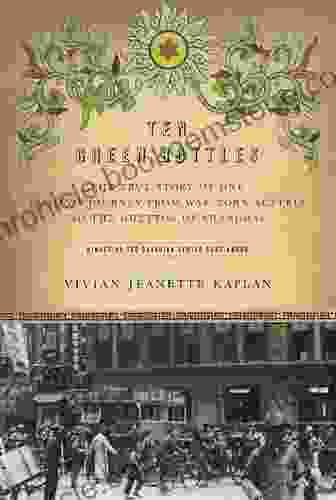
 Allen Ginsberg
Allen GinsbergThe True Story of One Family's Journey from War-Torn...
In the heart of Europe,...
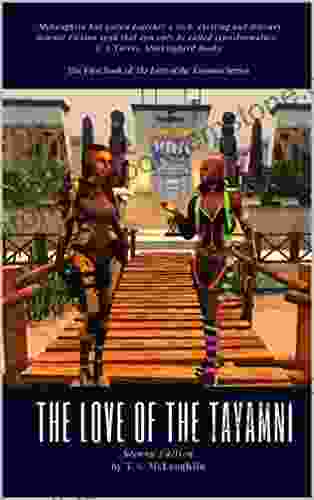
 Noah Blair
Noah BlairThe Enduring Love of The Tayamni Second Edition: A...
The Tayamni...

 Frank Mitchell
Frank MitchellThree Young Mothers And Their Extraordinary Story Of...
In the face of adversity,...

 Angelo Ward
Angelo WardReality Check: The Empire Corps Unmasked
In the labyrinthine realm of global...
5 out of 5
| Language | : | English |
| File size | : | 785 KB |
| Text-to-Speech | : | Enabled |
| Enhanced typesetting | : | Enabled |
| Word Wise | : | Enabled |
| Print length | : | 329 pages |
| Lending | : | Enabled |
| Screen Reader | : | Supported |







